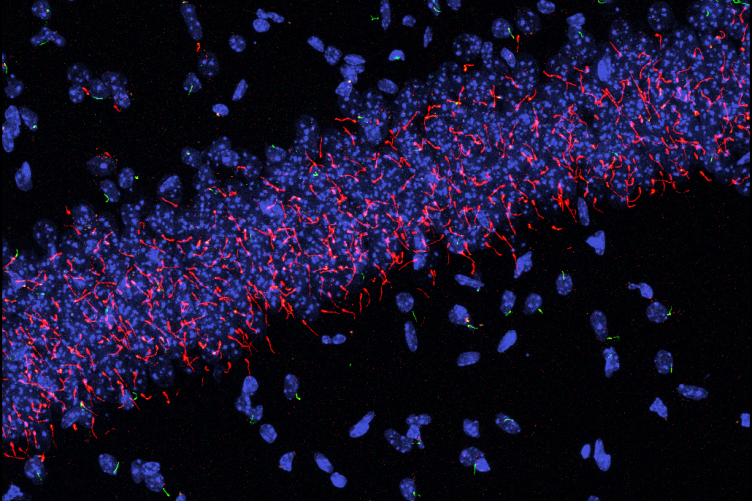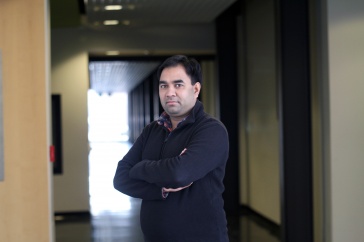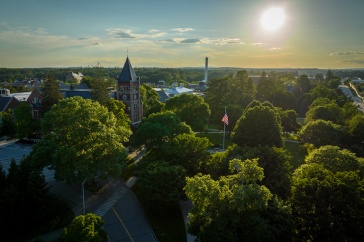
Neuronal primary cilia in the hippocampus. Credit: Juan Yang
UNH researchers have received an Academic Research Enhancement Award (AREA) from the National Institutes of Health (NIH) to study tiny antenna-like projections on the surface of brain cells called neuronal primary cilia, in an effort to understand how they regulate hippocampus-dependent memory formation.
“Neuronal primary cilia are poorly understood cellular organelles in the brain,” says Xuanmao Chen, assistant professor of neurobiology. Cilia malfunctions lead to cognitive impairment, intellectual disability, neurodegeneration, and other neurological disorders, many of which are associated with memory formation.
Chen is the principal investigator who was awarded the $400,000 R15 grant titled Neuronal Primary Cilia and Cognitive Disorders. His lab previously discovered that only a small portion of highly active hippocampal neurons engage in memory formation. In this new study, the lab will examine whether neuronal primary cilia “prime” hippocampal neurons, making them eligible for memory engagement.
The long-term goals of Chen’s research focus on three questions: How do neuronal primary cilia aid in memory formation; why do defective cilia lead to related cognitive disorders; and can ciliary proteins be targeted to develop novel therapeutics to treat cognition dysfunction-related disorders?
The work will also provide important research opportunities for at least four undergraduate students.
-
Written By:
Ryan Wilmot | UNH College of Life Sciences and Agriculture


















































